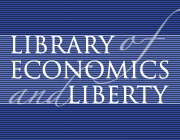Nassim shares Chapter 1 of his work-in-progress, Silent Risk, which explains what the Black Swan problem is and is not. He comments that it is “still incomplete, but useful.”
From his Facebook Page.
.org (UNOFFICIAL news site)
Nassim shares Chapter 1 of his work-in-progress, Silent Risk, which explains what the Black Swan problem is and is not. He comments that it is “still incomplete, but useful.”
From his Facebook Page.
Nassim shares his latest monograph (co-authored by Raphael Douady) and introduces his new venture in publishing at the same time:
Descartes Monographs accept only manuscripts that have been rigorously peer-
reviewed or contain material that has appeared in peer-reviewed journals or has
been sufficiently cited to merit inclusion in the series. Its aim is to “Überize”
academic publishing by cutting the middleperson and producing books of the
highest scientific quality at the most affordable price. Descartes engages in ethical
publishing, avoiding double-charging the public sector for books produced on
university time.
From his Facebook Page.

Nassim Nicholas Taleb, author of Antifragile, Black Swan, and Fooled by Randomness, talks with EconTalk host Russ Roberts about a recent co-authored paper on the risks of genetically modified organisms (GMOs) and the use of the Precautionary Principle. Taleb contrasts harm with ruin and explains how the differences imply different rules of behavior when dealing with the risk of each. Taleb argues that when considering the riskiness of GMOs, the right understanding of statistics is more valuable than expertise in biology or genetics. The central issue that pervades the conversation is how to cope with a small non-negligible risk of catastrophe.
Link: Nassim Nicholas Taleb on the Precautionary Principle and Genetically Modified Organisms
We use fragility theory to show the effect of size and response to uncertainty, how distributed decision-making creates more apparent volatility, but ensures long term survival of a system. Simply, economies of scale are more than offset by stochastic diseconomies from shocks and there is such a thing as a “sweet spot” in optimal size. We show how city-states fare better than large states, how mice and small species are more robust than elephants, and how the canton mechanism can potentially solve Near Eastern problems.
This talk was part of “Cities and Development: Urban Determinants of Success” — the NYU Development Research Institute’s 2014 Conference, hosted jointly with the Marron Institute of Urban Management. The conference touched on the role of cities in the development process.